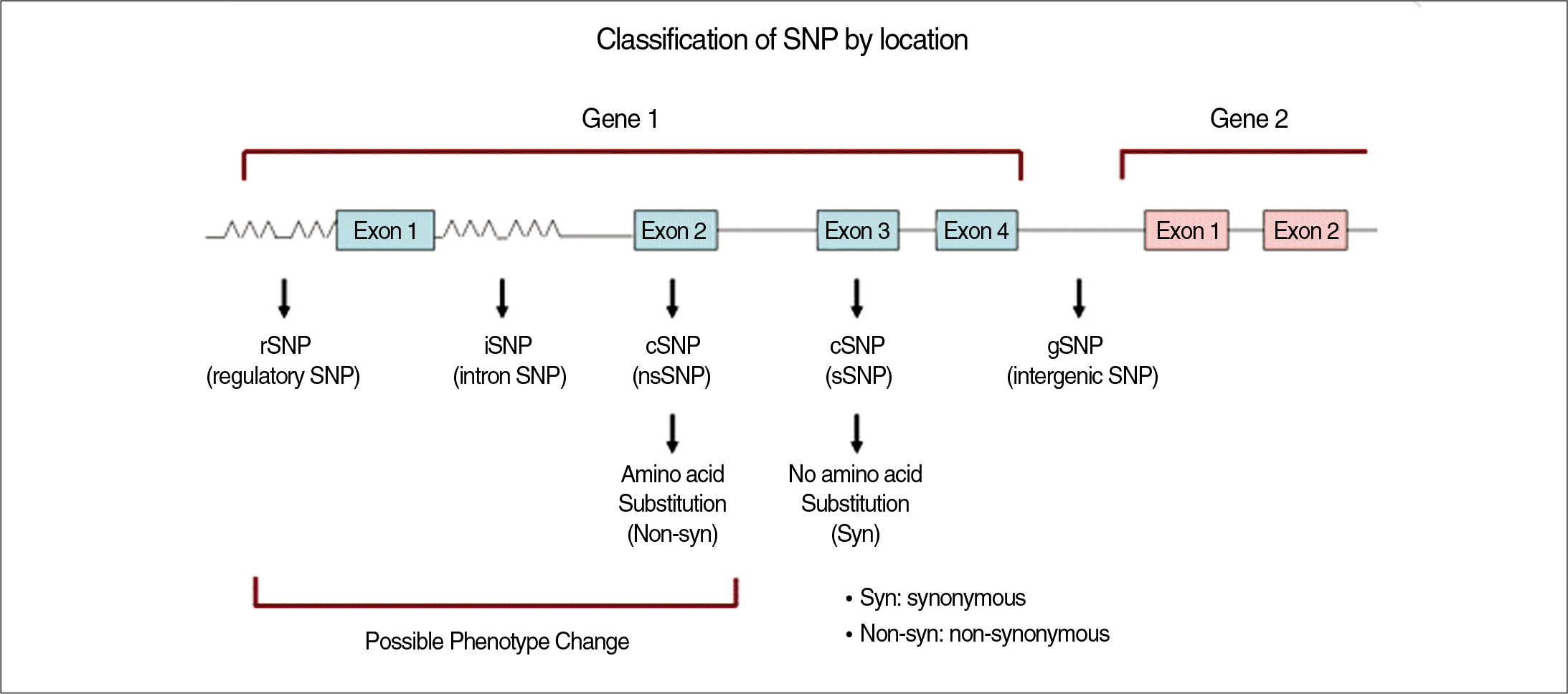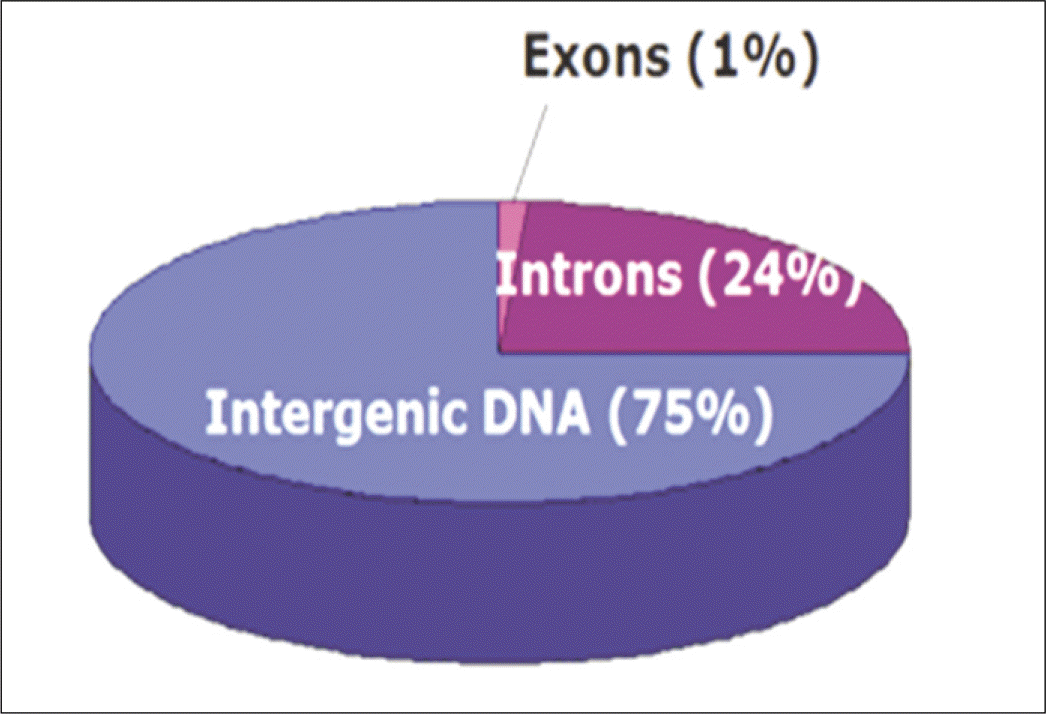Abstract
Genetic association study has been progressed in medicine along with advance in genetic technology. It focused on the individual differences in genotype due to errors occurring during DNA duplication, which can cause vulnerability to specific diseases. Polymorphism defines the varieties in phenotype due to those genetic variations. Polymorphism due to change in one DNA base sequence is called as a Single Nucleotide Polymorphism. In the near future, the evaluation of relative risk to specific disease according to SNP will be essential part of fundamental of medicine for the diagnosis, treatment and prevention. Dental caries and periodontal diseases has been first subject to genetic association study in dentistry and broaden out to other areas like bone formation and resorption. This article presents the current state of genetic association study and its application to dentistry. (J Korean Acad Prosthodont 2011;49:341-5)
REFERENCES
1.Lee JG. Genetic variation and disease. 2nd ed.Seoul: Worldscience;2010. p. 3.
2.International Human Genome Sequencing Consortium. Finishing the euchromatic sequence of the human genome. Nature. 2004. 431:931–45.
3.Lee JG. Genetic variation and disease. 2nd ed.Seoul: Worldscience;2010. p. 110.
4.Crawford DC., Akey DT., Nickerson DA. The patterns of natural variation in human genes. Annu Rev Genomics Hum Genet. 2005. 6:287–312.

5.Mostowska A., Hozyasz KK., Biedziak B., Misiak J., Jagodzinski PP. Polymorphisms located in the region containing BHMT and BHMT2 genes as maternal protective factors for orofacial clefts. Eur J Oral Sci. 2010. 118:325–32.

6.Blanton SH., Burt A., Garcia E., Mulliken JB., Stal S., Hecht JT. Ethnic Heterogeneity of IRF6 AP-2a Binding Site Promoter SNP Association With Nonsyndromic Cleft Lip and Palate. Cleft Palate Craniofac J. 2010. 47:574–7.

7.Tai H., Endo M., Shimada Y., Gou E., Orima K., Kobayashi T., Yamazaki K., Yoshie H. Association of interleukin-1 receptor antagonist gene polymorphisms with early onset periodontitis in Japanese. J Clin Periodontol. 2002. 29:882–8.

8.Ren XY., Xu L., Meng HX., Zhao HS., Lu RF., Chen ZB., Feng XH., Shi D., Zhang L., Tian Y. Family-based association analysis of S100A8 genetic polymorphisms with aggressive periodontitis. J Periodontal Res. 2009. 44:184–92.
9.Sahingur SE., Xia XJ., Gunsolley J., Schenkein HA., Genco RJ., De Nardin E. Single nucleotide polymorphisms of pattern recognition receptors and chronic periodontitis. J Periodontal Res. 2011. 46:184–92.

10.Andia DC., de Oliveira NF., Letra AM., Nociti FH Jr., Line SR., de Souza AP. Interleukin-8 gene promoter polymorphism (rs4073) may contribute to chronic periodontitis. J Periodontol. 2011. 82:893–9.

11.Wu YM., Chuang HL., Ho YP., Ho KY., Tsai CC. Investigation of interleukin-13 gene polymorphisms in individuals with chronic and generalized aggressive periodontitis in a Taiwanese (Chinese) population. J Periodontal Res. 2010. 45:695–701.

12.Chai L., Song YQ., Zee KY., Leung WK. Single nucleotide polymorphisms of complement component 5 and periodontitis. J Periodontal Res. 2010. 45:301–8.

13.Chai L., Song YQ., Zee KY., Leung WK. SNPs of Fc-gamma receptor genes and chronic periodontitis. J Dent Res. 2010. 89:705–10.

14.Anovazzi G., Kim YJ., Viana AC., Curtis KM., Orrico SR., Cirelli JA., Scarel-Caminaga RM. Polymorphisms and haplotypes in the interleukin-4 gene are associated with chronic periodontitis in a Brazilian population. J Periodontol. 2010. 81:392–402.
15.Kobayashi T., Nagata T., Murakami S., Takashiba S., Kurihara H., Izumi Y., Numabe Y., Watanabe H., Kataoka M., Nagai A., Hayashi J., Ohyama H., Okamatsu Y., Inagaki Y., Tai H., Yoshie H. Genetic risk factors for periodontitis in a Japanese population. J Dent Res. 2009. 88:1137–41.

16.Suwanwela J., Lee J., Lin A., Ucer TC., Devlin H., Sinsheimer J., Garrett NR., Nishimura I. A genetic association study of single nucleotide polymorphisms in FGFR1OP2/wit3.0 and longterm atrophy of edentulous mandible. PLoS One. 2011. 6:e16204.

17.Ting TY., Wong RW., Rabie AB. Analysis of genetic polymorphisms in skeletal Class I crowding. Am J Orthod Dentofacial Orthop. 2011. 140:e9–15.

18.Karasneh JA., Darwazeh AM., Hassan AF., Thornhill M. Association between recurrent aphthous stomatitis and inheritance of a single-nucleotide polymorphism of the NOS2 gene encoding inducible nitric oxide synthase. J Oral Pathol Med. 2011 Apr 11.

19.Durrani O., Banahan K., Sheedy FJ., McBride L., Ben-Chetrit E., Greiner K., Vaughan RW., Kondeatis E., Hamburger J., Fortune F., Stanford MR., Murray PI., O' Neill LA., Wallace GR. TIRAP Ser180Leu polymorphism is associated with Behcet' s disease. Rheumatology (Oxford). 2011. 50:1760–5.
20.Kelly JL., Novak AJ., Fredericksen ZS., Liebow M., Ansell SM., Dogan A., Wang AH., Witzig TE., Call TG., Kay NE., Habermann TM., Slager SL., Cerhan JR. Germline variation in apoptosis pathway genes and risk of non-Hodgkin' s lymphoma. Cancer Epidemiol Biomarkers Prev. 2010. 19:2847–58.




 PDF
PDF ePub
ePub Citation
Citation Print
Print




 XML Download
XML Download